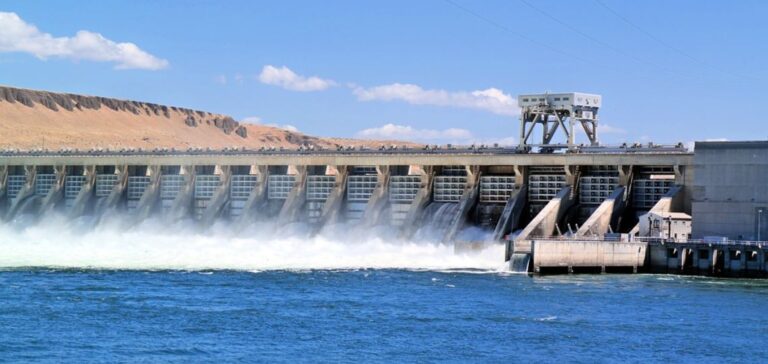In recent decades, global warming coupled with population growth has reduced water availability in Ecuador and Colombia. The two countries, which generate 92% and 70% of their electricity from hydropower respectively, are particularly vulnerable to climatic variations. The El Niño climatic anomaly aggravated the situation this year, causing a period of intense drought, especially in Ecuador.
Impact on reservoirs and energy supply
Key regions such as Azuay in Ecuador, where the Mazar and Paute reservoirs are located, have suffered from a severe lack of rainfall, affecting 38% of the country’s electricity supply. In Colombia, fires exacerbated by drought have devastated vast areas, including the usually humid Amazon region, exacerbating the crisis.
Consequences of low reservoir levels
In Colombia, reservoirs such as El Peñol are at critical levels, forcing increased use of thermoelectric power plants to offset the deficit. In Ecuador, with the Mazar dam running dry, the government was forced to introduce energy rationing, intensifying the crisis at a politically sensitive time.
Government responses and accusations of sabotage
The Ecuadorian president has suggested sabotage of the Mazar dam to explain the crisis, although analyses show a gradual reduction in the water level. In response to the crises, Colombia temporarily halted electricity exports to Ecuador, exacerbating the situation. However, with the return of the rains, these exports are about to resume.
Aging infrastructure and future challenges
The challenges are not limited to climatic conditions; aging infrastructure and tariff policies that favor big business but are costly for the state exacerbate the situation. Past decisions, such as Gustavo Petro’s decision not to build a new reservoir in Bogotá for environmental reasons, are also being scrutinized in the light of the current crises.
Ecuador and Colombia are at a critical crossroads, where water and energy management must be rethought to adapt to a changing climate and growing energy needs. Both nations need to consider substantial reforms to secure their energy and water futures.






















